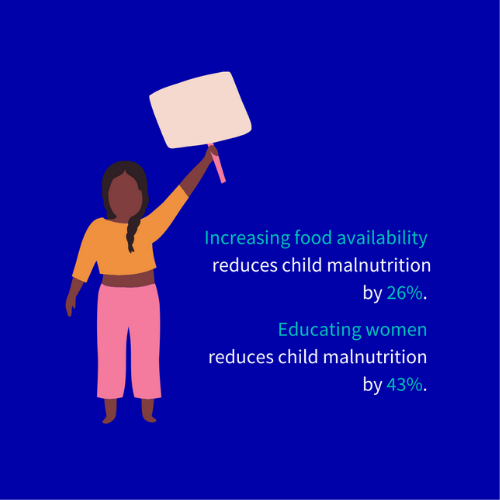The UN World Food Programme has declared that COVID-19 has aggravated the problem of world hunger and set us back decades in our goal to extinguish famine. This year, World Hunger Day is more important than ever.

Like other major outbreaks, such as Ebola and SARS, COVID-19 has had both direct and indirect impacts on food insecurity (FAO/UN, 2019).
The global pandemic is having massive economic impacts that echo through society and afflict the most vulnerable.
For instance, with the restrictions on international travel, the tourism industry has lost a lot of revenue. This is expected to leave 130 million more people acutely hungry this year, adding to the 135 million who were already in hunger before the pandemic. (FAO/UN, 2020).

COVID-19 also poses a huge threat to nations lacking robust social safety nets.
Systems of social safety-nets are a critical aid that helps mitigate the negative economic and social impacts during crises. However, many developing countries lack such systems, meaning that in low-income countries less than 20% of people have access to social protections (FAO/UN, 2019). This includes countries in Africa, Asian, Latin America and the Caribbean where a large percent of people are undernourished and depend on their country’s social safety net. For instance, it is estimated that in Africa 250 million people are undernourished, while in Asia this injustice affects 513 million people. (FAO/UN, 2019)

This global pandemic is one acute crisis perched on top of many chronic crises.
Issues such as violent conflicts, climate change and economic hardships are already considered the major factors causing people to live in hunger.
According to the UN, violent conflicts have pushed 77 million people into acute food insecurity globally, while extreme weather has driven around 34 million people to this same condition. In tandem, economic turbulence is responsible for causing 24 million people to live with acute food insecurity. (FAO/UN, 2019).

Why we must keep fighting.
The COVID-19 global pandemic crisis has really undermined some great progress that was being made to relieve world hunger. In 2019, UN reports showed that the global rate of undernourished people had stabilised. At the same time, the global rate of children below the age of five living in chronic malnutrition continued to decline, registering 21.3% in 2019 (FAO/UN, 2019).
The results found by the UN show that our effort to address the crisis of world hunger over the past decades has not been in vain. Furthermore, they show that, in the face of the current pandemic, the answer is to continue to fight even harder.
That's why this year’s World Hunger Day is so important.
A global issue requires a global response. So May 28 will be a day of global unity dedicated to bringing awareness to world hunger, an injustice that already affects more than 820 million people and, due to the COVID-19 crisis, will affect millions more.
The sustainable solution is not about handouts - it's about lifting up and celebrating human dignity, and enabling people to become the agents of their own development. That is what our network of 500,000 volunteers, village partners and community-minded elected leaders across 13 Program Countries are working towards - and now more than ever they need our support.
This World Hunger Day on May 28, join our global response by sharing our social media posts and investing in our village partners who are being empowered to end their own hunger during this global pandemic.





